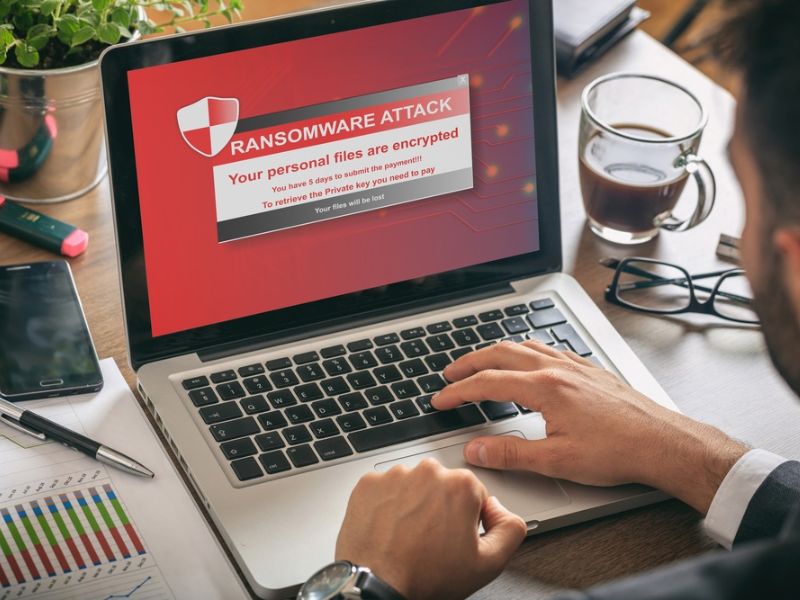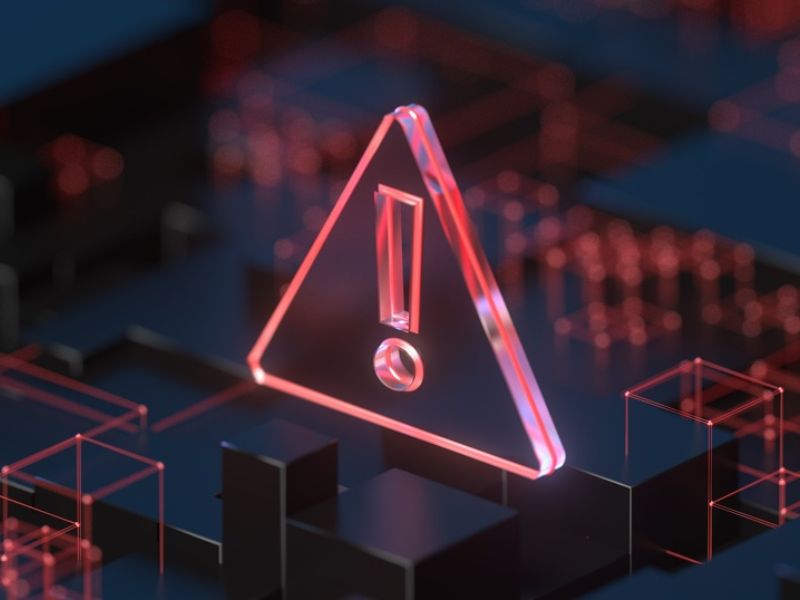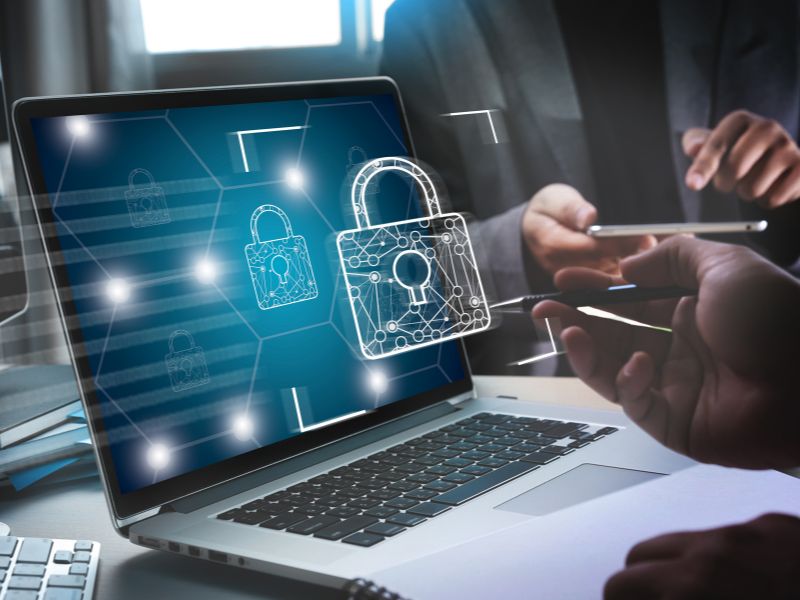No business is exempted from ransomware attacks. Ransomware is a type of malware used by hackers to steal your data, freeze your system, and demand a ransom, which may range from thousands and even millions of dollars.
Once ransomware attacks happen, they may result in the loss of critical data and information. It may also cause financial and reputational damage to businesses. Fortunately, there are many solutions to protect a business against such threats.
For example, any company may consider combating ransomware with a cryptolocker and other similar solutions available in the market. However, it’s essential to remember that there’s no one-size-fits-all approach to secure your business from ransomware attacks.
If you’re confused about what options to consider, here are some ways to protect your business against a ransomware attack:
1. Regular Patching and Monitoring
It’s vital to monitor all the possible entry points in your network, including applications, ports, and configurations. Your monitoring capabilities must also extend deeper to cover what happens inside your network since it’s possible to respond and detect ransomware attacks even though you ensure the protection of your first layer of defense.
Timely and effective patching ensures that detected vulnerabilities are remediated before cybercriminals exploit such vulnerabilities. It also protects your data as your company grows. However, patching must include all the apps you use, operating systems, and firmware on your devices for best results.
2. Evaluate Your Bring Your Own Device (BYOD) Policy
Many businesses nowadays prefer a hybrid-working environment due to its convenience for both employees and employers. Unfortunately, it may also increase the risk of cyber threats as several employees may use their own devices to access your company’s data, system, and network.
If this is the case with your employees, consider evaluating your BYOD policy to know its strengths and weaknesses. It’ll also ensure better security since your employees will understand what and when their devices must be used for work, keeping your corporate data and assets from exposure to cyber threats.
3. Backup Your Data
In most cases, ransomware may put all your data on hold unless you agree to the cybercriminals’ conditions. Once it happens, it can be the biggest challenge for your business. To avoid it, you should regularly back up your data.
One of the best ways to mitigate ransomware attacks is to schedule data backup daily. You can store it on a cloud server or external hard drive. This way, you can quickly reinstall your backup files.
An excellent approach for data backup is the 3-2-1 rule. In this method, you need to keep three separate data copies on two storage types with one copy offline. Consider other techniques like having an indelible and immutable copy on your cloud storage server. It means this copy can’t be deleted or altered.
When backing up your data, always assume the worst-case scenario. With this, you’ll be more prepared in case of ransomware attacks, enabling you to rebuild your workstations and servers using your backup.
4. Implement Email Filtering and Scanning
Email is another possible entry point in a network. Cybercriminals may use seemingly legitimate emails and attachments to infiltrate your system and network. As a solution, implement email filtering and scanning to help your employees avoid clicking malicious links or attachments.
Your employees must also be wary of unexpected, poorly written, and threatening emails. Train them to be vigilant to avoid possible ransomware attacks.
To filter and scan emails successfully, use tools designed to protect your emails. These days, you can find various email scanning and filtering tools to help you avoid cyber threats such as phishing and ransomware.
Need help creating an effective security plan to prevent ransomware attacks?
Contact Growth Hackers
5. Install Antivirus and Firewall
Another way to protect your business against ransomware attacks is to install an antivirus and firewall or use a dedicated cybersecurity platform. Comprehensive antivirus software can detect, scan, and resolve cyber threats effectively. But for best results, you should configure your firewalls since antivirus only works at the internal level and detect attacks once it’s in your network or system.
A firewall may serve as your system’s first defense against external or incoming attacks. It can protect against hardware- and software-based attacks. It’s also critical for any private network or business since it can filter out and block malicious data packets that may enter your system.
If you already have installed an antivirus and configured a firewall, be careful with fake threat detection alerts. Some of these may seem legit, but they might be from something other than your antivirus software. So, avoid clicking them and verify alerts before taking action.
6. Segment Your Network
Since ransomware may spread quickly throughout your network, you must limit it once an attack happens. To do this, you should implement network segmentation. Doing this will divide the network into several small networks, so your business can prevent ransomware from spreading to each of your systems.
When segmenting your network, be sure your subsystem has its own firewalls, unique access, and security controls to keep ransomware from accessing your data. This won’t only segment access but also give your cybersecurity experts more time to isolate, identify, and get rid of the threat.
7. Have Cybersecurity Awareness Training Regularly
Ransomware may cause significant damage to any business. The best thing you can do to combat it is to have cyber-aware employees through regular enterprise cybersecurity awareness training. When done effectively, it can help employees understand the significance of proper cyber hygiene, identify cyber-attacks on the web and email, and other security risks associated with their tactics.
There are other benefits of implementing cybersecurity awareness training, and these include the following:
Reduce Threats
A cybersecurity awareness training program is crucial in reducing the risks that may result in various cyber threats, including data breaches and ransomware attacks. When done regularly, employees will be more mindful of information security best practices, technologies, and applications used in the workplace, including websites, social media, and email.
Prevent Downtime
Cyber threats may cost your business a lot of money. The recovery process can also be time-consuming and may cause disruptions to your regular operations. You can prevent downtime when your employees are aware of cybersecurity practices and principles. Moreover, cyber attacks are less likely to happen, keeping your business systems functional.
Ensure Compliance
If your company handles classified, sensitive, and personal information, compliance violations are never an option. Once you mishandle records, it may harm your organization, affecting your finances and reputation in the market. A cybersecurity awareness training program ensures your employees will understand how to manage sensitive information and be familiar with compliance policies. Not only does it improve your compliance efforts, but it also adds an extra layer of security to your company.
To enjoy these benefits, stick with regular cybersecurity training programs. If you don’t know how to implement it, look for a reliable company that offers modules and training programs suitable for your business needs.
8. Invest in Multi-Factor Authentication and Password Security
Single-factor authentication is no longer enough to protect your business from ransomware attacks. While you can strengthen and invest in password security through programs including password managers, it’s worth considering other authentication methods, such as:
- Mobile Authentication: It allows businesses to control which mobile devices can access your data and resources.
- Multi-Factor Or Two-Factor Authentication: It’s crucial to provide an extra layer of protection to your company’s sensitive data. It works by requiring users to have additional login credentials to gain account access.
- Passwordless Authentication – It helps applications get to market faster, adopt and delight more users, and reduce their risk surface against credential-based attacks.
When implemented properly, these authentication tactics can protect against unauthorized access to user accounts. It also makes it harder for hackers to infiltrate your system, reducing fraud risks and ransomware attacks over time.
Avoid falling victim to ransomware attacks . Protect your business now!
9. Limit User Access Privileges
You can protect your systems and networks by limiting user permissions and access to necessary data only. The idea of restricted user access privileges limits who can use the company’s confidential data. With this, you can avoid ransomware attacks from spreading between your company systems. Even with access, users may also encounter limited resources or functions.
Typically, least privilege involves a zero-trust model, which assumes all external or internal users can’t be trusted. It means they need to identify verification in each access level. This verification process may involve multi-factor authentication to prevent company data access should a ransomware attack occur.
10. Consider Endpoint Security
It must be a priority for all growing businesses. As companies start to grow, the number of end-users also increases, creating more endpoints that should be secured. Endpoints such as servers, smartphones, and laptops are potential opportunities for hackers to access your network or private information.
Whether you’re managing a bigger company or a home-based business, install endpoint detection and response (EDR) as well as endpoint protection platforms (EPP) for every network user. Such technologies enable system administrators to manage and monitor security for every remote device. They also protect your business from the following:
- Exploits
- Malicious downloads
- Suspicious attachments and emails
- Unauthorized access to applications and devices
You can choose any endpoint security tool regardless of your preferences or budget. The best one for your business offers flexible deployment options, rapid detection, and behavioral monitoring to deal with ransomware crises effectively.
Final Thoughts About How To Protect Your Business Against Ransomware Attacks
Ransomware attacks can damage your business in ways beyond what you can imagine. If you don’t want that to happen, make sure to follow the above strategies and practices to protect your business. In case of a ransomware attack, avoid paying the ransom. Instead, hire the best professionals to help you beat cybercriminals.
Growth Hackers is a professional insurance marketing agency helping businesses from all over the world grow. There is no fluff with Growth Hackers. We help entrepreneurs and business owners prevent ransomware attacks, increase their productivity, generate qualified leads, optimize their conversion rate, gather and analyze data analytics, acquire and retain users and increase sales. We go further than brand awareness and exposure. We make sure that the strategies we implement move the needle so your business grow, strive and succeed. If you too want your business to reach new heights, contact Growth Hackers today so we can discuss about your brand and create a custom growth plan for you. You’re just one click away to skyrocket your business.







